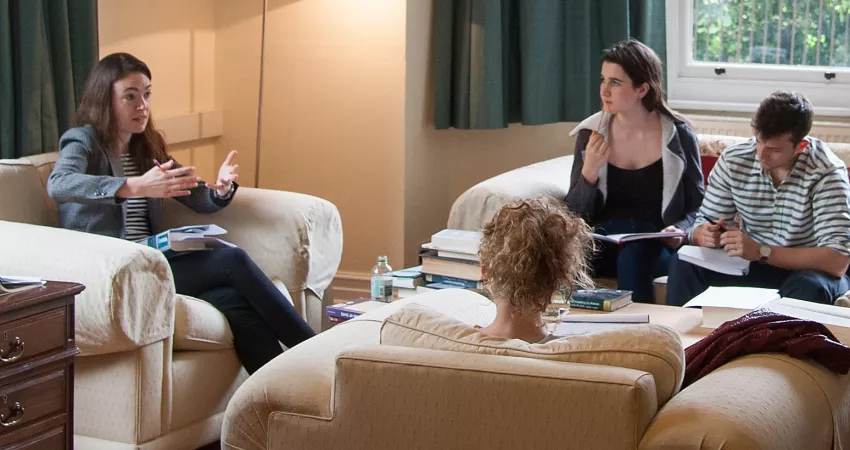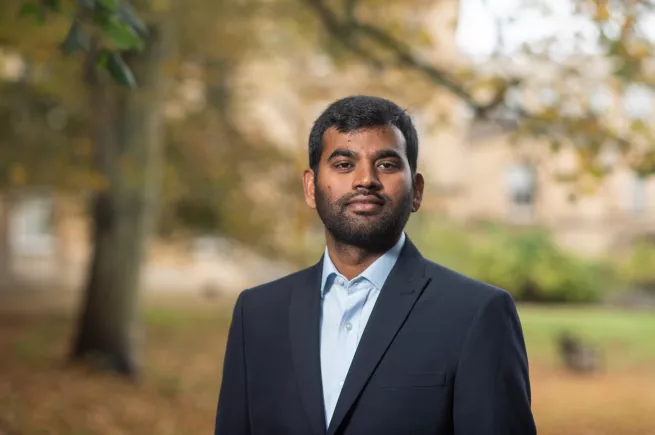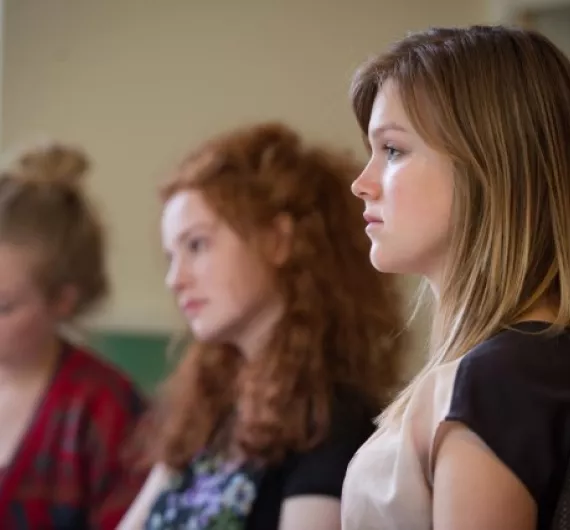I joined New College in 2022 as a Stipendiary Lecturer in Biochemistry. I studied Chemical Sciences at Pondicherry University, India and moved to Iowa State University for doctoral studies. I came to Oxford in 2015 and worked in Professor Dame Carol Robinson's group in the Chemistry department as a postdoctoral research associate. I was awarded a Royal Society University Research Fellowship in 2021 to set up my research group in the newly formed Biology department.
Teaching
I tutor undergraduate students at New College on various topics in Biochemistry and supervise Biochemistry Part II students, Biology Masters students and DPhil candidates in the Biology Department.
Research Interests
Cellular processes are mediated by the complex network of interactions between macromolecules, such as proteins and nucleic acids, and small molecules. A comprehensive understanding of this network is essential for gaining deeper insights into the mechanisms governing cellular function and how they become disrupted in various diseases. In our laboratory, we use a combination of experimental (including native mass spectrometry, cryo-EM and mass photometry) and computational approaches, interfacing structural biology and artificial intelligence, to study the complex network of interactions within model bacterial and plant systems.
Our research focuses on membrane proteins, with a particular emphasis on exploring the multi-protein complexes that facilitate the transport of lipids and proteins across the double envelope membranes found in pathogenic Gram-negative bacteria and endosymbiotic organelles like chloroplasts. Our ultimate goal is to unveil the structural dynamics of these machineries in their native environment.
Selected Publications
Oluwole A, Hernandez-Rocamora V, Cao Y, Li X, Vollmer W, Robinson CV, Bolla JR (2024). Real-time biosynthetic reaction monitoring informs the mechanism of action of antibiotics. Journal of American Chemical Society.
Oluwole A, Corey R, Brown C, Hernandez-Rocamora V, Stansfeld P, Vollmer W, Bolla JR, Robinson CV (2022). Peptidoglycan biosynthesis is driven by lipid transfer along enzyme-substrate affinity gradients. Nature Communications 13, 2278.
Kaur H, Jakob RP, Marzinek JK, Green R, Imai Y, Bolla JR, Agustoni E, Robinson CV, Bond PJ, Lewis K, Maier T, Hiller S (2021). The antibiotic darobactin mimics a β-strand to inhibit outer membrane insertase. Nature 593, 125-129.
Fiorentino F, Rotili D, Mai A, Bolla JR, Robinson CV (2021). Mass spectrometry enables the discovery of inhibitors of an LPS transport assembly via disruption of protein-protein interactions. Chemical Communications 57, 10747-10750.
Fiorentino F, Sauer JB, Qiu X, Corey RA, Cassidy CK, Mynors-Wallis B, Mehmood S, Bolla JR, Stansfeld PJ, Robinson CV (2021). Dynamics of an LPS translocon induced by substrate and an antimicrobial peptide. Nature Chemical Biology 17, 187-195.
Bolla JR, Howes AC, Fiorentino F, Robinson CV (2020). Assembly and regulation of the chlorhexidine-specific efflux pump AceI. Proceedings of the National Academy of Sciences USA 117, 17011-17018.
Bolla JR, Agasid MT, Mehmood S, Robinson CV (2019). Membrane protein-lipid interactions probed using mass spectrometry. Annual Review of Biochemistry 88, 85-111
Bolla JR, Sauer JB, Wu D, Mehmood S, Allison TM, Robinson CV (2018). Direct observation of the influence of cardiolipin and antibiotics on lipid II binding to MurJ. Nature Chemistry 10, 363-371.

Read more about our tutorial system and what it offers all of our students.
Discover more about New College
Find out more about what it is like studying at one of the largest but friendliest Colleges in Oxford.



